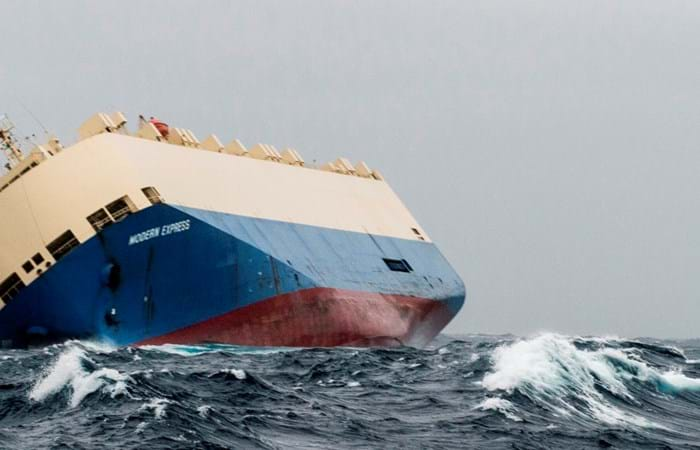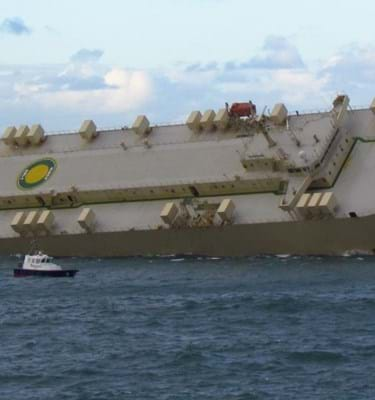The Modern Express, a 164-meter-long Roll-on/Roll-off vessel, was en route to Le Havre in France on 26 January 2016 in heavy weather when she lost stability. She was left adrift 150 nautical miles off the Spanish coast in the Bay of Biscay. The 22 crew members had already been successfully evacuated by the Spanish coastguard.
The car carrier was laden with timber and trucks and the wind, waves and strong current left her listing heavily. An immediate rescue operation was needed as the vessel was drifting towards the French coast. There was a possibility that she might run aground, causing an environmental disaster. A salvage team was on location within 24 hours.
A frigate from the French Navy and a French tug were nearby to closely monitor the situation. Because it was too risky to board the Modern Express immediately, a detailed inspection from the air was carried out first after which the salvage plan was drawn up. The only option was to attach a tow line and tow the vessel to a port in a safe and controlled way.
The salvage operation was launched after the French authorities approved the plan. On 29 January a helicopter transferred a four-man salvage team from the navy frigate to the Modern Express. Because of the bad weather conditions it was impossible to attach the tow line. A second attempt was considered irresponsible, whereupon the team was hoisted off the vessel. Meanwhile all possible scenarios were taken into consideration. The French authorities took the measures required to respond to a possible grounding.
On 1 February the Modern Express was just 25 nautical miles off the French coast. The salvage team was hoisted on board again in a final attempt to attach a tow line to the Modern Express before she ran aground on the coast. A towing connection was made successfully with a tug.
As a result of the close collaboration between SMIT Salvage, the P&I Club and the Spanish and French authorities - and thanks to the new EU Port of Refuge guidelines - the port of Bilbao was willing to receive the Modern Express. In the early morning of 3 February, eight salvors went back on board the Modern Express to attach additional tow lines before she was towed into the port. After the vessel was safely moored, the salvage team was taken off the vessel.
After extensive inspections it was decided to use the vessel's tanks for ballasting and de-ballasting in order to righten the Modern Express. After three weeks, the ship was successfully brought upright and re-delivered in a safe condition to her owners.


